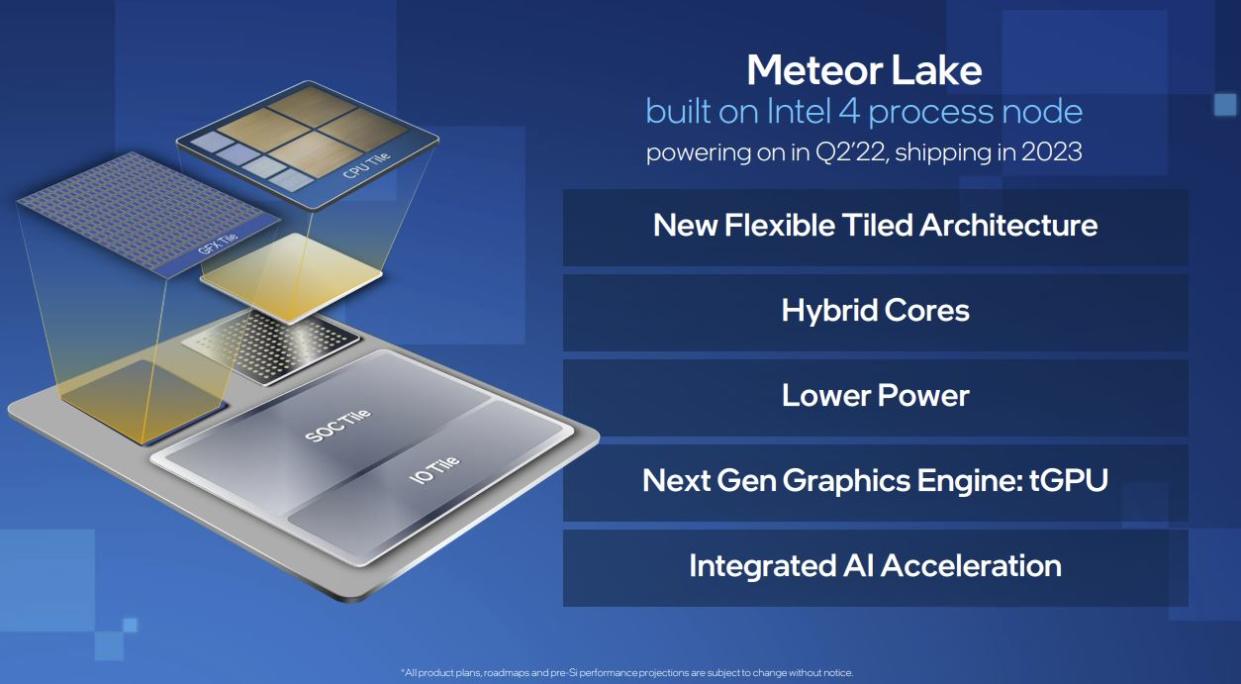Intel Boosts Meteor Lake's CPU Clocks Beyond 5 GHz: Leak

Intel's engineers have managed to push boost CPU core clocks of the upcoming Meteor Lake processors beyond 5.0 GHz, according to renowned hardware leaker Golden Pig Upgrade Pack (via HXL). The purportedly improved frequency potential of Intel's next-generation CPU cores would allow Intel's Meteor Lake products to offer significantly higher performance than the company's existing offerings.
According to the leak, Intel's 14th-Gen Core Ultra 7 processor now reaches a single-core boost clock of 5.0 GHz, whereas the Core Ultra 9 goes past 5.0 GHz. As with all leaks, this should be taken with a grain of salt as the information is unofficial, and it is unclear whether these frequencies can be achieved on mass-produced silicon.
Intel's contemporary 13th-Gen Core 'Raptor Lake' processors for high-end notebooks boost their high-performance cores to 5.0 GHz and beyond without problems. Meanwhile, boosting the CPU cores of Meteor Lake may be a bit more challenging.
On the one hand, the general-purpose CPU cores of Meteor Lake are housed inside a revolutionary 3D-stacked compute tile and are made on Intel 4 process technology that uses extreme ultraviolet lithography (EUV). The new production node promises to offer numerous advantages over Intel 7 node (previously known as 10nm Enhanced SuperFin). But on the other hand, the previous-gen fabrication technology was designed to enable datacenter-oriented CPUs with comparatively lower boost clocks, so Intel 4 may not be as 'fast' as its predecessor.
Another thing about boosting the frequency of Meteor Lake's compute tile is that it may get too hot or too power hungry at some point. Meanwhile, being a multi-tile 3D-stacked design, Meteor Lake may, by definition, be more power hungry than a similar product featuring a monolithic die. Hence, the CPU's power consumption must be kept in check.
Alleged Specifications of Intel's Meteor Lake CPUs for Laptops
Since Intel's mobile 14th Generation Core Ultra-badged 'Meteor Lake' processors are not going to have a core count advantage over existing 13th Generation Core 'Raptor Lake' CPUs (both have up to six high-performance cores and up to eight energy-efficient cores), it may be imperative for them to have high clocks to clearly outperform predecessors in all workloads.
Of course, the new processors are set to feature some new accelerators and features that will likely improve the user experience in general, and AI workloads in particular. However, many people will still want to compare CPUs in things like games and professional performance-hungry applications, and these tend to rely on good-old CPU cores, so the higher the frequency, the better.
However, since the information about CPU boost clocks of Intel's Meteor Lake does not come from Intel and we have no idea how fresh or outdated it is, we should take it with discretion.

